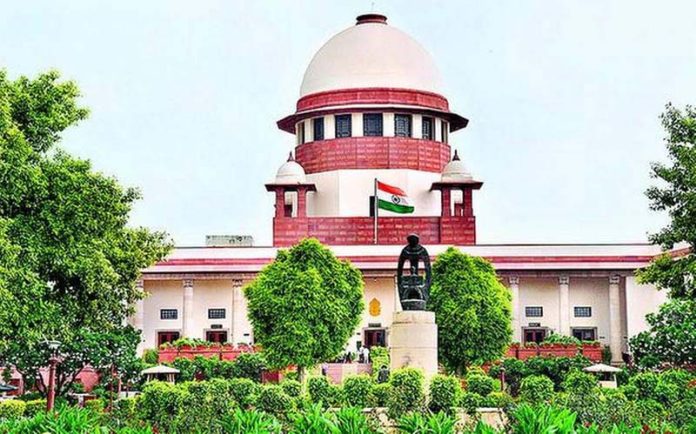Excelsior Correspondent
NEW DELHI, May 11: The Supreme Court has held that a Government employee staying in a rent-free accommodation allotted to his father, a retired Government servant, is not entitled to claim any House Rent Allowance (HRA).
The bench of Justice B R Gavai and Justice Sandeep Mehta, while upholding a HRA recovery notice against the appellant, held that under the Jammu and Kashmir Civil Services (House Rent Allowance and City Compensation Allowance) Rules, 1992, HRA could not be claimed by the retired father upon superannuation. It was therefore justified to issue a recovery notice to the appellant to pay Rs 3,96,814 which he claimed earlier as HRA.
“The appellant being a Government employee could not have claimed HRA while sharing rent-free accommodation allotted to his father, a retired Government servant. There is no infirmity in the impugned orders warranting interference”, Apex Court said.
The facts of the case pertained to the appellant who was an Inspector (Telecom) in Jammu and Kashmir Police, 4th Battalion who superannuated from services on 30th April 2014. He subsequently received a communication regarding the recovery of the outstanding House Rent Allowance (HRA) due in his name.
The recovery notice was issued upon a complaint that the appellant was availing Government accommodation and simultaneously drawing HRA.
Notice was given to the appellant to deposit a sum of Rs 3,96,814 determined to have been drawn by him as HRA without entitlement. The recovery notice was issued after the appellant failed to establish that the house in question was not in his possession.
The challenge to the recovery notice in a writ petition before the High Court of Jammu & Kashmir & Ladakh was rejected by the Single Bench as well as the Division Bench in a Letters Patent Appeal by orders dated December 19, 2019 and September 27, 2021 respectively.
Appearing on behalf of the appellant, Advocate Purnima Bhat argued that the house in question was allotted to the appellant’s father who was a retired Deputy Superintendent of Police and that the appellant occasionally shared the house with his father.
She drew the attention of the bench to Rule 6(h)(iv) of the1992 Rules, which provides that when a family has multiple members working for the Central or State Government and they live together in housing given by the Government, only one of them can receive a housing allowance, as decided amongst them.
On the other hand, the counsel for the State, Parth Awasthi contended that since the appellant enjoyed the residence of the house allotted to his father, Rules 6(h)(i) and (ii) apply to the present case to disentitle the appellant to claim HRA. The counsel submitted that the recovery notice was justified.
Rejecting the contentions of the appellant, the Apex Court noted that since the appellant’s father retired from his service in 1993 it would be ‘axiomatic that he would not be entitled to claim HRA after demitting office’. While the house is allotted to the retired father of the appellant, HRA could not be claimed by the father upon his retirement as he is no longer in service and thus Rule 6(h)(iv) would not be applicable in the present case.
The Supreme Court further held that the High Court had correctly dismissed the petitions on the grounds mentioned under Rule 6(h)(i) and (ii). It was expressly observed that in these two provisions, the appellant who was a Government employee was disentitled to claim HRA for sharing a rent-free house which was allotted to his father who was already retired.
“The appellant being a Government employee, could not have claimed HRA while sharing rent-free accommodation allotted to his father, a retired Government servant. There is no infirmity in the impugned orders warranting interference”, Supreme Court concluded.
Trending Now
E-Paper


